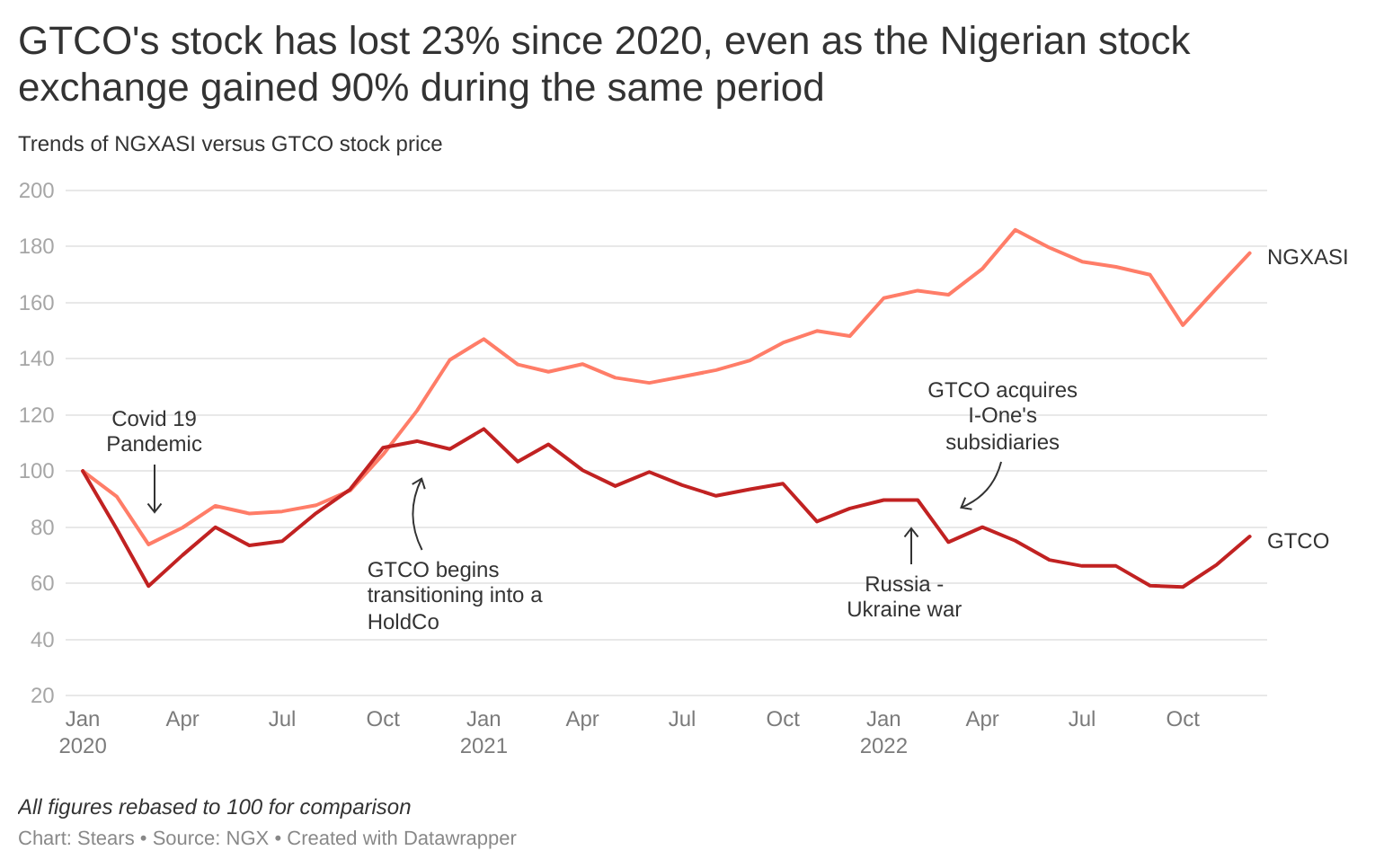Rescuing GTCO’s stock price
Key questions this article answers:
-
Despite being a top bank in Nigeria (in terms of profitability and asset size), GTCO’s stock price has persistently declined since 2020. What can management do to deliver improved value to its shareholders?
-
Companies typically have four major options to deliver value: invest in capital projects (that’ll increase profits in the future), pay cash dividends, acquire another company or business, or undertake a share buyback. Can a share buyback be the answer to GTCO’s woes?
2022 was not the best year to be a Nigerian bank's Chief Executive Officer (CEO).
Higher costs (due to the Central Bank of Nigeria’s policies and inflation) diminished banks’ ability to make profits, leading to a selloff on banking stocks. For instance, First Bank posted a 71% y/y rise in regulatory costs to ₦52.5 billion in H1’22 (versus ₦30.7 billion in H1’21). Collectively, the Nigerian banking equities index lost 1.8% in 2022.
In addition, Moody’s (the global credit ratings agency) downgraded nine Nigerian banks, citing the negative impact of the Central Bank of Nigeria’s (CBN) dollar rationing on banks’ ability to fulfil their dollar obligations.
As one of the largest (by market capitalisation), GTB was naturally in this crossfire. The bank's share lost 23% between 2020 to 2022. But the Nigerian Stock Exchange (NGX) appreciated 90% in the same period.

But as a CEO, you don’t give excuses to your shareholders who have staked their hard-earned funds on your leadership abilities. Your job is to deliver value and returns on investments.
Invest with Confidence, Operate with Precision.
Access economic and industry data & insight for global organisations.
Trusted by leading global organisations






